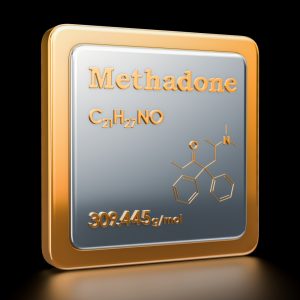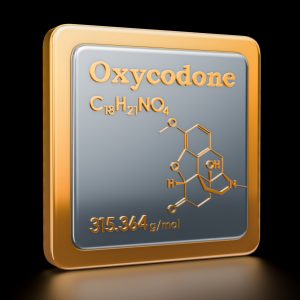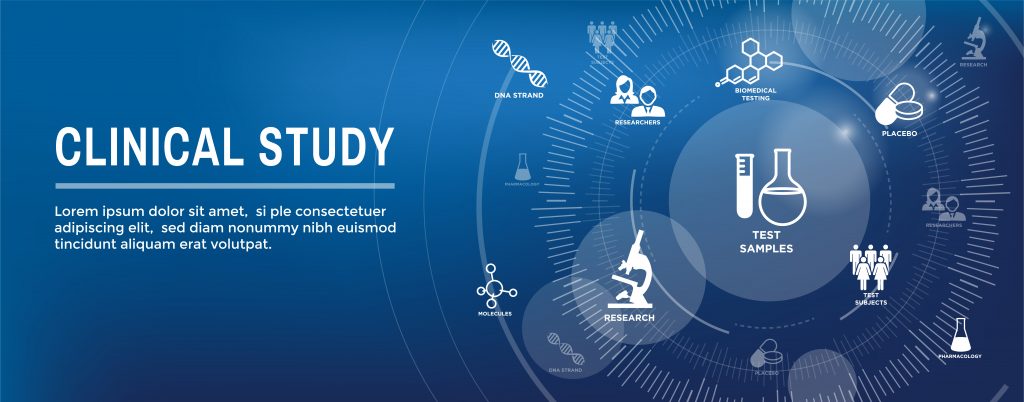Video Link: https://vimeo.com/293593212
Video Download: Click Here To Download Video
Video Stream: Click Here To Stream Video
Research shows that treatment for Opioid Addiction can significantly suppress Testosterone Production in male patients. These conclusions are derived from an  article published in Scientific Reports, conducted by researchers from McMaster University in Hamilton, Canada.
article published in Scientific Reports, conducted by researchers from McMaster University in Hamilton, Canada.
In the past, it has been noted that addiction to Opioids, including Heroin and Oxycontin, can suppress Testosterone Levels, but this study quantifies the significance of that Hormone Suppression. This research shows that Opioid Dependency Treatments, which use drugs such as Methadone to curtail the addiction to harder and more dangerous Opioids, reduce Testosterone Levels by far more than medical professionals previously assumed.
The lead researcher for this study, Dr. Zena Samaan, explains that the results were so dramatic that they believed that they had made an error somewhere in their calculations. When they went back and analyzed the data and the science behind the results, however, everything was sound.
The data for this study was collected from 231 participants, all of which were taking Methadone as an aspect of their Opioid Dependency Treatments in Ontario, Canada. This data was compared to 783 men and women from Ontario that did not use Opioids.
In Canada, as well as in the United States, it is common to treat patients with Opioid Addiction with Methadone, and all patients analyzed in this study were currently on such a regimen. What they found was that men taking Methadone experienced Serum Testosterone Concentrations 75% lower than their control counterparts that weren't using such drugs. Although Testosterone Levels in males were profoundly impacted, the drugs had little to no influence on Testosterone Production in women.
How do Opioids Lower Testosterone?
The use of Opioids leads to a condition known as Opioid-Induced Androgen  Deficiency. The actions of Opioids upon the Hypothalamus reduce the production of Gonadotropin-Releasing Hormone, which suppresses the production of Luteinizing Hormone, an essential precursor to both the creation of Testosterone and Sperm.
Deficiency. The actions of Opioids upon the Hypothalamus reduce the production of Gonadotropin-Releasing Hormone, which suppresses the production of Luteinizing Hormone, an essential precursor to both the creation of Testosterone and Sperm.
Many men with OIAD even suffer from significant fertility issues as a result of their treatment. Research suggests that there are Opioid receptors in the Hypothalamus that exist to modulate the production of sex hormones, but in patients using Opioids, whether for Chronic Pain, Recreationally, or Addiction Treatment, Opioids provide their beneficial effects while also blocking the production of sex hormone precursors by the Hypothalamus, which leads to Testosterone Deficiency.
Testosterone Deficiency Leads to Significant Clinical Side-Effects
Testosterone Deficiency associated with Opioid Dependency Treatment leads to a variety of side-effects that can be attributed to the Hormone Deficiency, including mood disorders, erectile dysfunction, fatigue, and reduced quality of life. In many cases, these symptoms can be so dramatic that it causes patients to stop Opioid Dependency Treatment, which can increase their risk of becoming addicted once again. Testosterone Therapy may become an integral part of Opioid Dependency Therapy in the near future.
Also, Testosterone Production can change significantly while a man is on Opioid Dependency Treatments. These treatments work by providing patients with a steady dose of Methadone, which is slowly reduced over time to mitigate the severe symptoms of withdrawal. Testosterone Levels remain suppressed as a result of Methadone Treatment and are prone to fluctuation as a result of this weaning process.
 Dr. Samaan sincerely believes that Testosterone Therapy should be an option for these patients, to improve their quality of life while recovering from addiction, and to reduce the incidence of side-effects associated with the treatment. Many patients aren't open about talking about Testosterone with their doctor, but she believes that these patients should open up a dialog about Testosterone, and make sure that Low-T Related Symptoms get treated as an aspect of their recovery.
Dr. Samaan sincerely believes that Testosterone Therapy should be an option for these patients, to improve their quality of life while recovering from addiction, and to reduce the incidence of side-effects associated with the treatment. Many patients aren't open about talking about Testosterone with their doctor, but she believes that these patients should open up a dialog about Testosterone, and make sure that Low-T Related Symptoms get treated as an aspect of their recovery.
Experts at the John Street Clinic believe that around twenty percent of male patients using Methadone for addiction therapy need Testosterone Replacement or some other form of Hormone Therapy to optimize their treatment.
Despite Testosterone Deficiency Risk, Men Recover from Addiction More Effectively with Methadone
This kind of research is obviously beneficial to both patients and the medical profession, but some medical professionals believe that there is potential for this sort of information to cause Opioid Users not to enter Opioid Dependency Treatment. For this reason, it is vital to emphasize the effectiveness of the treatment and the option of Hormone Therapy if symptoms of Testosterone Deficiency arise.
This research is also useful because its results can be used to underline the importance of monitoring Testosterone Levels in older men that may use Prescription Opioids for Chronic Pain or other reasons. Testosterone Deficiency is a real and significant medical issue that can increase mortality risk from a variety of factors, including Cardiovascular Disease and Heart Attack. By recognizing the effects that pain treatments have on hormone balance, it leads doctors to become more aware of the risks and potentially open up the door for Hormone Treatments for men that would not have gotten the opportunity to take them before.
Other Studies Associate Opioid Use to Testosterone Deficiency
Studies involving Heroin Addicts have also noted the impact that Opioids can have upon the production of Testosterone. Luckily, it appears that the use of Opioids only leads to a temporary reduction in Testosterone Levels. In one study, it was discovered that Testosterone Production returned to normal after just a month after the patient quit using Heroin and other Opioids.
Opioid use directly impacts the function of the testicles in addition to merely reducing Testosterone Levels. In particular, Opioid Use has been clinically shown  to reduce the mobility of sperm, as well as the production of interstitial fluid in the testicles.
to reduce the mobility of sperm, as well as the production of interstitial fluid in the testicles.
Another study, which also used patients taking Methadone for Opioid Dependency, gathered data from 25 patients. Researchers found that 68% of the subjects had Testosterone Levels that were abnormally low. This level was higher for men that were over the age of fifty, of which, 87.5% of subjects displayed low T-Values. In particular, Luteinizing Hormone Levels, along with Total and Free Testosterone Levels were suppressed, whereas Prolactin and Follicle-Stimulating Hormone Levels remained in the normal range.
Contact Us Today For A Free Consultation

- Low Testosterone Treatments - Video [Last Updated On: December 21st, 2024] [Originally Added On: July 12th, 2012]
- Treating low testosterone - Video [Last Updated On: December 21st, 2024] [Originally Added On: July 12th, 2012]
- Fatigue and Low Testosterone part 2 - Video [Last Updated On: December 22nd, 2024] [Originally Added On: July 12th, 2012]
- Fatigue and Low Testosterone part 1 - Video [Last Updated On: December 22nd, 2024] [Originally Added On: July 12th, 2012]
- Nation + World [Last Updated On: January 22nd, 2018] [Originally Added On: September 10th, 2012]
- Natural Remedies - Natural Way to Promote Healthy Vitality in Men. [Last Updated On: May 4th, 2015] [Originally Added On: October 6th, 2012]
- ‘Horrendous’ Study Shows Obese Teen Boys Face Impotence and Infertility [Last Updated On: January 11th, 2018] [Originally Added On: October 17th, 2012]
- Symptoms of Low Testosterone Levels in Men - Video [Last Updated On: January 6th, 2025] [Originally Added On: November 2nd, 2012]
- Symptoms of Low Testosterone Levels with Dr. Alexander - Video [Last Updated On: January 6th, 2025] [Originally Added On: November 2nd, 2012]
- Bio-Identical Hormone Therapy [Last Updated On: January 7th, 2025] [Originally Added On: November 2nd, 2012]
- Low Testosterone and Male Fertility - Video [Last Updated On: January 7th, 2025] [Originally Added On: November 2nd, 2012]
- He's the one they call Dr Feel Good! - Video [Last Updated On: January 8th, 2025] [Originally Added On: November 2nd, 2012]
- Get the down low on Low T - Video [Last Updated On: January 8th, 2025] [Originally Added On: November 2nd, 2012]
- Low Testosterone Quiz - Video [Last Updated On: January 9th, 2025] [Originally Added On: November 2nd, 2012]
- Female sex-enhancing nasal spray undergoing clinical trials [Last Updated On: October 24th, 2015] [Originally Added On: November 2nd, 2012]
- More Men Suffering from Low Testosterone [Last Updated On: May 4th, 2015] [Originally Added On: November 7th, 2012]
- obese men lose weight with testosterone - Video [Last Updated On: January 23rd, 2025] [Originally Added On: November 7th, 2012]
- Bodybuilding Tip Testosterone Boosters to Build Muscle Do They Work - Video [Last Updated On: January 24th, 2025] [Originally Added On: November 9th, 2012]
- Male Pattern Baldness - Video [Last Updated On: January 27th, 2025] [Originally Added On: November 12th, 2012]
- Bio-Identical Hormone Replacement Men and/or Women - Video [Last Updated On: February 3rd, 2025] [Originally Added On: November 22nd, 2012]
- LEARNING ABOUT TESTOSTERONE LEVELS - Video [Last Updated On: February 4th, 2025] [Originally Added On: November 22nd, 2012]
- Salivary diagnostics [Last Updated On: February 11th, 2025] [Originally Added On: December 4th, 2012]
- Natural Hormone Repalcement Therapy [Last Updated On: February 19th, 2025] [Originally Added On: December 10th, 2012]
- Why You Should Help Others Fight -Major Depression, Anxiety, Depersonalization, Low Testosterone- - Video [Last Updated On: January 7th, 2013] [Originally Added On: January 7th, 2013]
- Effects Of Low Testosterone | Low T Hormones - Video [Last Updated On: February 14th, 2013] [Originally Added On: February 14th, 2013]
- Go7Herbal Why Men Are Having Low Testosterone And High Estrogen - Video [Last Updated On: February 18th, 2013] [Originally Added On: February 18th, 2013]
- Vegan Blood Test - I'm Diabetic, Obese, and Low Testosterone - Video [Last Updated On: February 23rd, 2013] [Originally Added On: February 23rd, 2013]
- Vegan for 12 years. Diabetic, Obese, Low Testosterone, Hyperkalemic and out of shape? - Video [Last Updated On: February 26th, 2013] [Originally Added On: February 26th, 2013]
- Low testosterone in men-Have your testosterone checked for free. See below for details. - Video [Last Updated On: March 7th, 2013] [Originally Added On: March 7th, 2013]
- Low Testosterone (Lunch with the Doctor) February 2013 - Video [Last Updated On: March 8th, 2013] [Originally Added On: March 8th, 2013]
- Being aware of low testosterone - Video [Last Updated On: March 23rd, 2013] [Originally Added On: March 23rd, 2013]
- Low Testosterone, or so I thought. - Video [Last Updated On: April 9th, 2013] [Originally Added On: April 9th, 2013]
- Haas Psychiatric Wellness - Low Testosterone - Video [Last Updated On: April 20th, 2013] [Originally Added On: April 20th, 2013]
- low testosterone linked to future ra - Video [Last Updated On: May 19th, 2013] [Originally Added On: May 19th, 2013]
- www.YourTScore.com Importance of Testing for Low Testosterone by Dr. Tammy Tucker - Video [Last Updated On: May 24th, 2013] [Originally Added On: May 24th, 2013]
- Low testosterone= Low Sex Drive - Video [Last Updated On: June 15th, 2013] [Originally Added On: June 15th, 2013]
- The Chicken or the Egg: Which Comes First, Diabetes or Low Testosterone in Men? - Video [Last Updated On: July 2nd, 2013] [Originally Added On: July 2nd, 2013]
- Dr. DiPiazza Updates Low Testosterone - Video [Last Updated On: July 8th, 2013] [Originally Added On: July 8th, 2013]
- About Low Testosterone and Treatment - Video [Last Updated On: July 16th, 2013] [Originally Added On: July 16th, 2013]
- SHC Video 12 Low Testosterone - Video [Last Updated On: July 18th, 2013] [Originally Added On: July 18th, 2013]
- Anti Aging Costa Rica - What is LowT? ( What is Low Testosterone? ) and Anti-Aging Costa Rica - Video [Last Updated On: May 4th, 2015] [Originally Added On: July 18th, 2013]
- The Doctor is In: Low testosterone - Video [Last Updated On: July 28th, 2013] [Originally Added On: July 28th, 2013]
- How Is Low T Or Low Testosterone Diagnosed? By Low T Expert Dr David Asher In Orange County CA - Video [Last Updated On: August 7th, 2013] [Originally Added On: August 7th, 2013]
- Low T Or Low Testosterone Introduction By Low T Expert Dr David Asher MD in Anaheim - Video [Last Updated On: August 7th, 2013] [Originally Added On: August 7th, 2013]
- Low T Or Low Testosterone Quiz With Dr David Asher MD in Anaheim OC Orange County - Video [Last Updated On: August 7th, 2013] [Originally Added On: August 7th, 2013]
- Low T Quiz With Low Testosterone Expert Dr David Asher MD in Anaheim CA VIDEO - Video [Last Updated On: August 10th, 2013] [Originally Added On: August 10th, 2013]
- Diet soda vs. regular; low testosterone: Healthy Living [Last Updated On: August 14th, 2013] [Originally Added On: August 14th, 2013]
- Natural Cure For Low Testosterone Helps To Boost Health And Vitality - Video [Last Updated On: August 18th, 2013] [Originally Added On: August 18th, 2013]
- Natural Herbal Remedies For Low Testosterone Help To Improve Sex Drive In Men - Video [Last Updated On: August 18th, 2013] [Originally Added On: August 18th, 2013]
- Build up your keywords low testosterone, Tyler-Longview Texas - Video [Last Updated On: September 2nd, 2013] [Originally Added On: September 2nd, 2013]
- Build up your low testosterone, Tyler-Longview Texas - Video [Last Updated On: September 2nd, 2013] [Originally Added On: September 2nd, 2013]
- Low Testosterone - Clinical Research Study - Video [Last Updated On: September 6th, 2013] [Originally Added On: September 6th, 2013]
- low estrogen vs low testosterone in men - Video [Last Updated On: September 18th, 2013] [Originally Added On: September 18th, 2013]
- Low Testosterone Treatment with Frisco Family Physician Dr. Bradley Friedman - Video [Last Updated On: September 26th, 2013] [Originally Added On: September 26th, 2013]
- Herbs for low testosterone - Video [Last Updated On: October 4th, 2013] [Originally Added On: October 4th, 2013]
- Food Items To Treat Low Testosterone Problems - Video [Last Updated On: October 5th, 2013] [Originally Added On: October 5th, 2013]
- 5 Natural Ways To Treat Low Testosterone - Video [Last Updated On: October 8th, 2013] [Originally Added On: October 8th, 2013]
- How low testosterone could be deadly - Video [Last Updated On: October 23rd, 2013] [Originally Added On: October 23rd, 2013]
- Low T Treatment | Low Testosterone Treatments | Low Testosterone ... [Last Updated On: January 26th, 2018] [Originally Added On: November 2nd, 2013]
- Is it Low T | Signs, Symptoms, and what you can do about Low T [Last Updated On: December 7th, 2017] [Originally Added On: November 3rd, 2013]
- enVoqueMD talks low testosterone, how to increase levels - Video [Last Updated On: November 3rd, 2013] [Originally Added On: November 3rd, 2013]
- Low Testosterone Causes Fatigue - Video [Last Updated On: November 5th, 2013] [Originally Added On: November 5th, 2013]
- Something Every Man Needs to Know - Video [Last Updated On: November 6th, 2013] [Originally Added On: November 6th, 2013]
- Low Testosterone - WebMD: Symptoms, Health Effects, and ... [Last Updated On: December 2nd, 2017] [Originally Added On: November 12th, 2013]
- Low Testosterone (Low T) Levels in Men, Women, Symptoms - OnHealth [Last Updated On: December 1st, 2017] [Originally Added On: November 12th, 2013]
- Low Testosterone (Low T) Symptoms, Causes, and Treatment [Last Updated On: March 26th, 2020] [Originally Added On: November 12th, 2013]
- Low T Treatment | Low Testosterone Treatments | Low ... [Last Updated On: January 13th, 2018] [Originally Added On: November 18th, 2013]
- Is it Low Testosterone? [Last Updated On: January 5th, 2018] [Originally Added On: November 21st, 2013]
- Testosterone Pills For Men [Last Updated On: November 23rd, 2013] [Originally Added On: November 23rd, 2013]
- Testosterone: Indications, Side Effects, Warnings - Drugs.com [Last Updated On: December 28th, 2017] [Originally Added On: December 2nd, 2013]
- Low Testosterone (Low-T) Symptoms, Causes, Treatment - What ... [Last Updated On: December 3rd, 2017] [Originally Added On: December 3rd, 2013]
- Low Testosterone in Women - Video [Last Updated On: December 6th, 2013] [Originally Added On: December 6th, 2013]
- Quack Medicine? A Push to Sell Testosterone Gels Is Not Without Major Side Effects [Last Updated On: December 14th, 2013] [Originally Added On: December 14th, 2013]
- Gym Time - Video [Last Updated On: December 19th, 2013] [Originally Added On: December 19th, 2013]
- Low Testosterone and Your Health - WebMD Men's Health Center ... [Last Updated On: January 30th, 2018] [Originally Added On: December 21st, 2013]
- Low testosterone signs, symptoms and treatments Dr Sam Chawla by Test X180 Ignite - Video [Last Updated On: January 2nd, 2014] [Originally Added On: January 2nd, 2014]
- Low Testosterone Symptoms In Men - Video [Last Updated On: January 3rd, 2014] [Originally Added On: January 3rd, 2014]
- Hormone therapies help older adults find new life [Last Updated On: December 8th, 2017] [Originally Added On: January 8th, 2014]
- HORMONES DECREASE AS PEOPLE AGE, BUT REMEDIES HELP OLDER ADULTS FIND NEW LIFE [Last Updated On: January 10th, 2018] [Originally Added On: January 8th, 2014]
- Accumed Research Associates Featured On Katz's Corner 77 WABC Radio Show To Discuss Enlarged Prostate Treatment and ... [Last Updated On: January 7th, 2018] [Originally Added On: January 13th, 2014]
Word Count: 1004





















